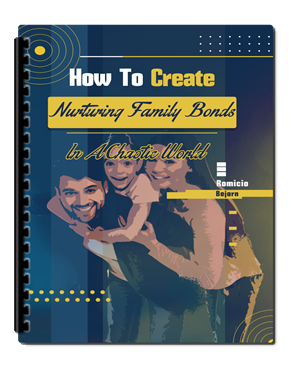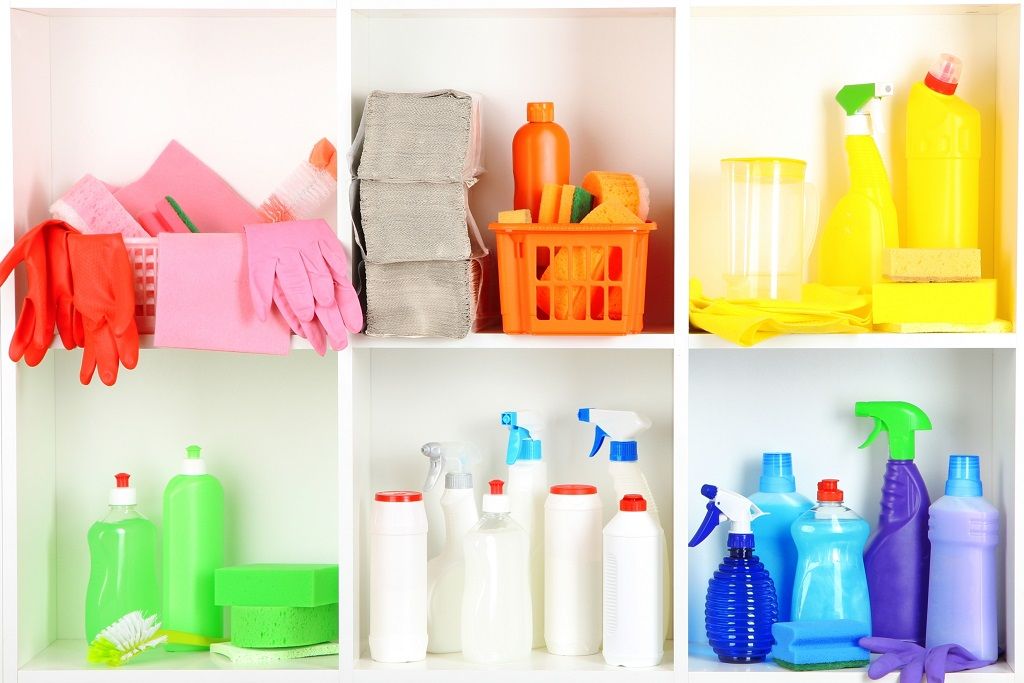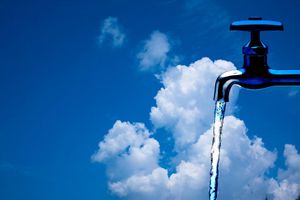Unfortunately, poisoning in the home is a common occurrence.
Did you know that out of the over two million calls a year Poison Control receives, over 80% of them are related to children?
That’s roughly 1.6 million children whose lives are put in danger by harmful chemicals they find around the home.
It’s scary to know that potentially your child could meet a tragic ending by gaining access to dangerous substances.
To prevent those heartbreaking situations, it’s critical to take the necessary steps to keep your children safe to prevent accidental poisoning within your home.
Today, I’m going to share twelve ways that could help you prevent poisoning in your home.
Let’s dive right in…
1)) Store Medicines in A Safe Place
Keep all medicines and chemicals in a cabinet your children cannot get into.
One of the best ways to keep your kids out is to install child locks on your cabinets.
Child locks are relatively inexpensive but are the best solutions to ensure your kids aren’t able to get into cabinets and gain access to harmful chemicals and medicines.
2)) Store Chemicals in Their Original Containers
Do not place the poisons in a milk jug or juice bottle. If your child gets hold of it, they will associate the container with something good and be encouraged to ingest the contents.
3)) Never Mix Products
Mixing certain chemicals together can create harmful fumes and corrosive acids.
The fumes could cause respiratory damage, irritate the eyes, and throat burns when inhaled.
Corrosive acids may cause skin irritation or burns.
Partial List of Chemicals You Should Not Mix:
- Ammonia and Bleach
- Baking Soda and Vinegar
- Bleach and Rubbing Alcohol
- Lysol and Bleach
- Glass Cleaner and Bleach
- Drain Cleaner and Bleach
- Hydrogen Peroxide and Vinegar
- Vinegar and Bleach
As you can see, mixing bleach with other chemicals is a big no-no and should be avoided.
4)) Store Medicines in Childproof Bottles
Make sure that your medicines are in childproof bottles.
If your child does happen to get hold of the medicine, at least he or she won’t be able to open the bottle and potentially be poisoned.
5)) Keep Indoor Plants Out of Reach of Your Children
Some indoor plants may be poisonous when touched or ingested, and a child or a pet is likely going to put these sorts of things in their mouth.
It’s better to err on the side of caution when it comes to protecting your little ones.
6)) Avoid Areas Recently Sprayed with Chemicals
Stay away from areas that have been recently sprayed with pesticides or fertilizer.
If you have pets, be certain to inform your pest control technician not to spray in areas they hang out in.
7)) Never Refer to Medicine as Candy
Your child will believe you and think that it’s okay to eat it without you administering it to them.
Be honest with your kids and educated them on medicine.
Express the importance of safety and how ingesting medicine could be harmful if not fatal.
8)) Read Medicine Labels Before Ingesting
For best practices, you should always check the label of the medicine being administered to see the proper dosage each time.
Never assume, because the last thing that you want to do is make an honest mistake with dosage.
9)) Safely Dispose of All Medicines
If you just toss unused or expired medication in the garbage, there is a possibility that a small child will get into the garbage and ingest harmful medication that is left over.
You could dispose of the medication by flushing it down the toilet.
I do not recommend putting leftover or expired medicine into your trash can as someone could grab it and possibly overdose on it.
Tip: Browse the Internet for a Medicine Disposal Center near you.
10)) Get Tested for Lead Levels
Have your home and your children tested for lead regularly, especially if you live in an older home.
You may want to consider having a professional test your water for lead.
If you don’t want to spend the money, you could have a Water Quality Tester delivered right to your door.
If you go the DIY route, be certain to research any device you plan on purchasing, because you want it to be accurate.
After all, the whole goal is to protect your loved ones from potentially being poisoned.
So, don’t base your choice on price alone, read the consumer reviews on each water tester.
11)) Keep Poison Control Number on Speed Dial
In the event of an emergency, you don’t want to be scrambling in a panic searching for Poison Control’s phone number.
Depending upon the substance that’s ingested, time is of the essence.
I recommend adding Poison Control’s number to your cell phone, landline phone, mobile devices, refrigerator, etc.
12)) Child Proof Access to Medicines and Chemicals
Ensure that your children cannot use a chair or step stool to gain access to hard-to-reach medicines and chemicals.
Even if you think they can’t, assume they can, so keep a lock on that cabinet anyways.
Signs of Poisoning
Be sure to be on the lookout for signs of poisoning. People who have just been poisoned usually display these symptoms:
- Difficulty breathing
- Nausea
- Dizziness
- Cramps
- Difficulty speaking
- Foaming or burning of the mouth
If you believe someone has been poisoned, call Poison Control immediately.
When you call, ensure that you have the following information on hand:
- Victim's condition, age, and weight
- When the product was consumed
- What he or she consumed
- How much was taken in
- Your name and phone number
You used to be advised to induce vomiting if you know a child has been poisoned, but now The American Academy of Pediatrics advises against it.
You could potentially do more harm to them than good.
Conclusion
You just learned twelve ways that you could prevent your children from being poisoned at home.
Witnessing someone who has been poisoned is very scary. It’s important that you stay calm, though, and get help right away.
Every second counts after the toxin have been consumed, so be quick when calling for help.
Poisonings can be prevented, so ensure that you take into consideration these tips to help guarantee that poisonings do not take place in your home.
Remember, your little ones depend upon you to keep them safe and out of harm’s way!
Download Our Free E-book!







